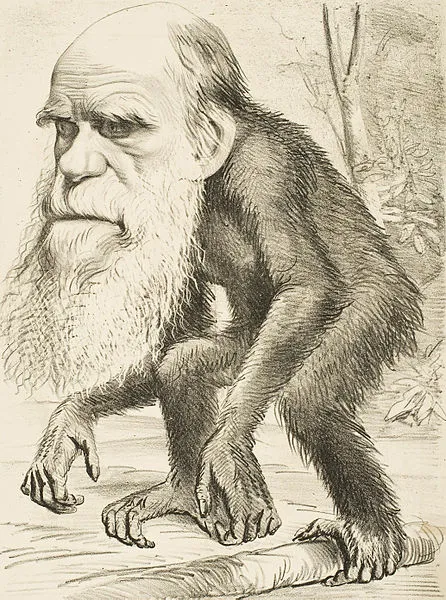by RAZIB KHAN

What we talk about when we compare chimps to humans genetically
Humans are both fascinated and horrified by chimpanzees. Although I can’t personally vouch for chimps, I suspect that when we look each other in the eye, humans aren’t the only ones with an eerie sense of seeing both a reflection of ourselves and an alien distortion of our species’ familiar features. Our ape relatives offer an irresistible invitation to contemplate our kinship to the animal world. Their physical resemblance is why chimpanzee cannibalism seems to disturb us more than this sort of brutality in its many other manifestations throughout the animal world.
Because of this apparent evolutionary proximity to humans, the utilitarian philosopher Peter Singer has been making the case for extending human rights to chimpanzees, gorillas and orangutans for over three decades. Singer outlined his argument in 1993’s The Great Ape Project: Equality Beyond Humanity. The reaction was generally positive, with Carl Sagan pointing out that we “share over 99% of our active genes with chimpanzees and gorillas…It challenges us to reassess many of our ethical assumptions.”
You’ve probably come across Sagan’s statistic before, usually stated in a form like: humans share 98 to 99 percent of our genes with chimpanzees. But where does this oft-repeated number come from? And how could Sagan confidently assert it when writing his review seven years before the first draft of the human genome was even completed in 2000? Is it even accurate?
First, yes, it’s close enough to correct to account for its persistence in public discourse. Second, it originated in the 1970’s using very primitive molecular biological techniques. Third, geneticists didn’t even know how many genes either chimpanzees or humans had at that time. The first results were partially simply lucky to get so close with so little data.
Perhaps one of the most mystifying questions though, is how does it make sense to simultaneously say you are 99% identical to a chimpanzee and that you are exactly 50% related to your parents or roughly 50% related to your siblings? It’s a good question. And I have an honest answer. But we’ll get to that. All in good time.
Razib Khan for more
